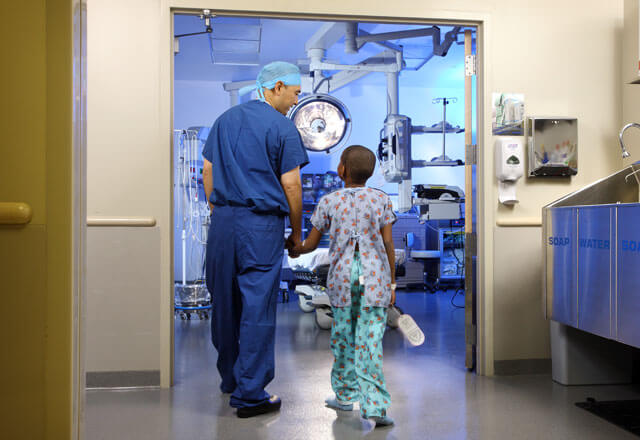pediatric surgeries

Pediatric surgery
What is a Pediatric Surgery?
For obvious reasons, child surgery or pediatric surgery necessitates the services of a trained surgeon. When it comes to operating on children, adult surgeons are not specialists. Children’s bodies are different from adult bodies, and their diseases are likewise different from adult diseases. When compared to adult treatments, surgical factors such as anesthesia, IV fluids, and so on require distinct monitoring and administration. Children should only be handled in operating rooms by well-trained surgeons who specialize in pediatric surgery. Pediatric surgery is a medical specialty that deals with the surgical treatment of children, adolescents, and babies.
Some fascinating facts regarding child surgery are shown below to provide you with a thorough image of the procedure. After all, it is your child’s safety that we are concerned about!
- To block nerve feeling in the target location during pediatric surgery, regional anesthesia should be administered in conjunction with a general anesthetic. This assists in the decrease of post-operative discomfort in children, allowing for a faster recovery.
- The medications used in local anesthetic for localized nerve blocking help minimize or even eliminate the need for narcotic-based pain relievers following surgery. This eliminates the need for the children to use severe pain relievers.
- When it comes to child surgery, parents play just as crucial a role as surgeons. They must psychologically prepare their youngster for the procedure. They should also be there with their children and the nursing staff to help them recuperate more quickly after surgery.
- The most prevalent type of anesthetic used in child surgery is epidural anesthesia. This kind is similar to the anesthetic used during delivery (injecting local anesthesia in the tailbone or back region).
- The length of time it takes for your kid to recuperate following surgery is determined by the kind and severity of the procedure. The usual recuperation time after surgery is 3 to 4 weeks, with major procedures taking 6 to 8 weeks.
- Ideally, an anesthetist should meet with the kid and his or her family prior to surgery to review the child’s general health and allergy issues.
- If the kid has a significant ailment or is under the age of one year, the chance of a serious complication is increased after pediatric surgery.
- Fluid management of the patient is an important aspect of medical care in children’s surgery, particularly during early therapy. Because children are particularly sensitive to even minor amounts of dehydration, having a good understanding of fluid physiology is essential.
- When numerous blood transfusions are necessary in children’s surgery, such as in the case of sickle cell disease patients, the patient’s body may generate counter antibodies. This makes finding suitable blood for the youngster challenging. To decrease antibody formation, the blood of a specific donor must be precisely matched to the blood of the patient.
Pediatric Surgeons — The Best Care For Children
Children should not be confused with fully grown adults. They may not always be able to express what is hurting them. They may not always be able to answer medical inquiries or be patient and helpful during a medical check. Pediatric surgeons are skilled in examining and treating children in a way that makes them feel comfortable and cooperative. Pediatric surgeons also employ technology and facilities that are built exclusively for children. The majority of pediatric surgery offices are set up and furnished with kids in mind. This includes waiting rooms and examination rooms, which may have toys, films, and reading materials for youngsters. This helps to create a secure and comfortable environment for your child.
If your doctor recommends that your kid visit a pediatric surgeon, you may be certain that he or she has the most thorough and full training, as well as the most experience working with children and treating surgical illnesses.
